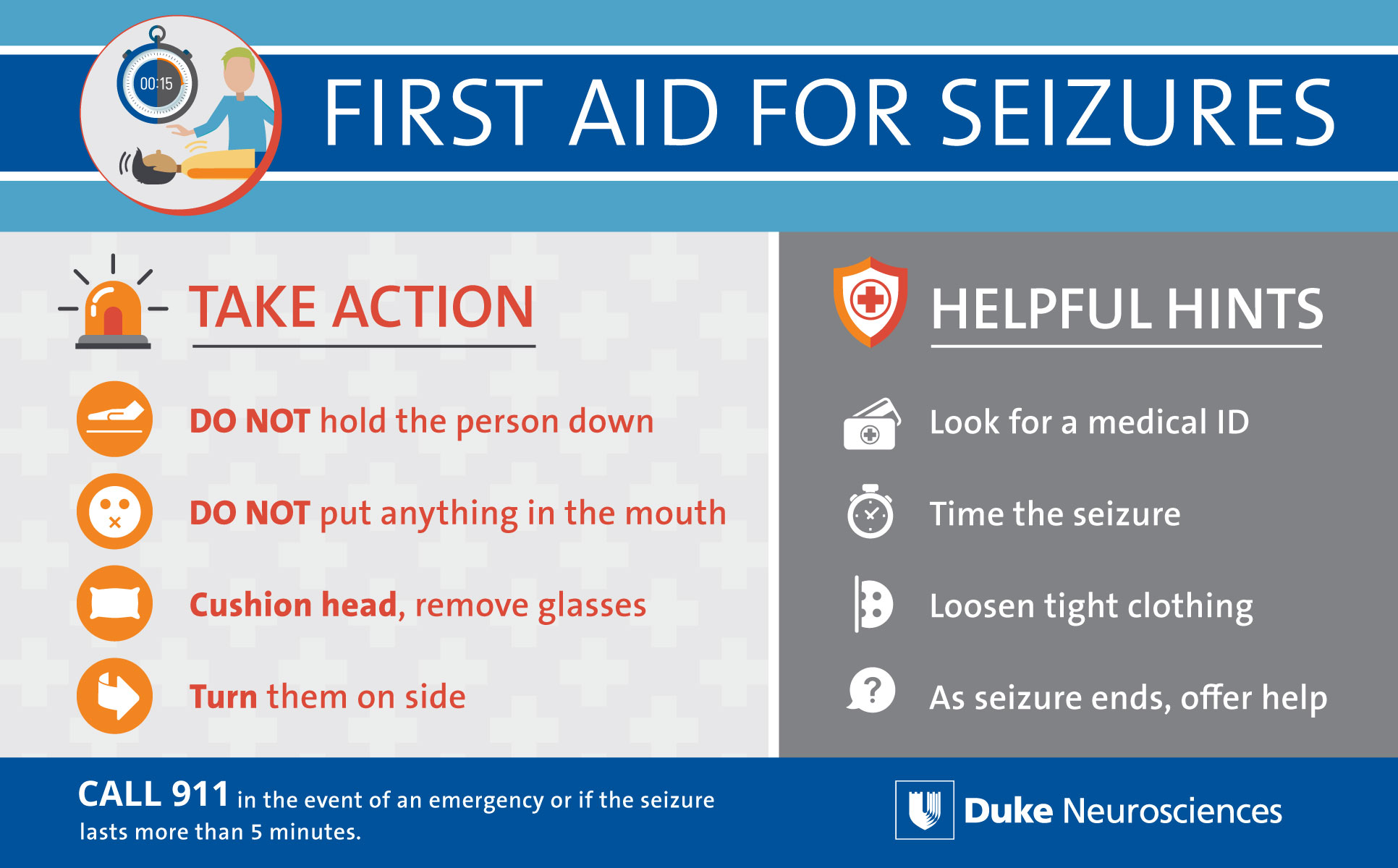 From the DukeHealth.org archives. Content may be out of date.
From the DukeHealth.org archives. Content may be out of date.
Epilepsy and COVID-19: What You Need to Know and When to Seek Care

Want some good news? In general, people with epilepsy do not have an increased risk of contracting COVID-19 or developing serious complications from it. However, you still may be concerned about how the virus could affect your seizure frequency and severity, doctor visits, medications, and more. Here, Duke epileptologist, Aatif Husain, MD, explains how COVID-19 may affect your epilepsy, how you can maintain seizure control, and the precautionary steps Duke is taking to keep you safe during the pandemic.
Are People with Epilepsy More Likely to Get COVID-19?
No. Some chronic medical problems can weaken the immune system, which makes it harder for your body to fight off infection. But, in general, otherwise healthy people with epilepsy do not have a compromised immune system. Exceptions include people with epilepsy and other health problems or with types of epilepsy that are caused by autoimmune problems.
Does COVID-19 Cause or Worsen Seizures for People with Epilepsy?
In rare cases, COVID-19 can cause breakthrough seizures in people with epilepsy. This is particularly true for certain types of epilepsy disorders, like Dravet syndrome, that are more likely to result in fever-related seizures. If you notice a change in your seizure frequency or severity, evaluate whether you should seek immediate care or call your doctor.
How Do I Safely Seek Care for New or Worsening Epilepsy Symptoms?
Most people with epilepsy don’t need to go to the emergency room after a seizure. But delaying necessary emergency care could lead to complications or worse. Talk to your doctor now to discuss which situations would require you to go to the emergency room. These would include a seizure that:
- Is accompanied by difficulty breathing
- Is different than any seizure you’ve had before
- Is severe, meaning it causes you to lose consciousness for more than five minutes or continues for more than five minutes after taking a rescue medication
- Is part of back-to-back seizures that don’t allow you to recover in between
- Occurs in water
- Occurs while you are pregnant
- Results in head injury or other serious injury
It’s also important to keep your scheduled medical appointments. Duke is taking extra precautions to protect you from possible exposure to COVID-19 during appointments, surgeries, and procedures at our hospitals and clinics. You may be able to talk to your doctor from the comfort of your own home by using one of our telehealth options.
If I Need Treatment for COVID-19, Could Certain Medications Worsen My Epilepsy?
Some medications being used to treat COVID-19 may affect seizures or interact with antiseizure medications. Chloroquine, hydroxychloroquine, and azithromycin have been found to cause seizures in rare cases. Little is known about whether remdesivir affects seizures. Only take these medications when prescribed by a qualified doctor who has weighed the risks and benefits.
How Can I Be Proactive About My Epilepsy During the Pandemic?
It’s always important to be mindful of your health and avoid behaviors that could trigger seizures. Here’s what you can do to help yourself:
- Check your medication supply. You should always have an emergency reserve -- at least two to three months -- of your antiseizure medications on hand, just in case there is an interruption in availability. Fortunately, while certain medication shortages have been reported, common antiseizure medications do not appear to be in short supply. Many insurance companies have relaxed their rules about authorization requirements, refill limits, and prescription delivery.
- Maintain a routine. Your normal routines may be disrupted right now. Because lack of sleep can increase seizure frequency, adjust to your new normal by establishing regular wake and sleep times.
- Take care of yourself. It’s also important to maintain a good diet and limit alcohol, tobacco, and caffeine. Exercise can be very helpful, but discuss your exercise plans with your doctor first to make sure they are safe. As always, educate yourself and loved ones about what to do if you have a seizure.




